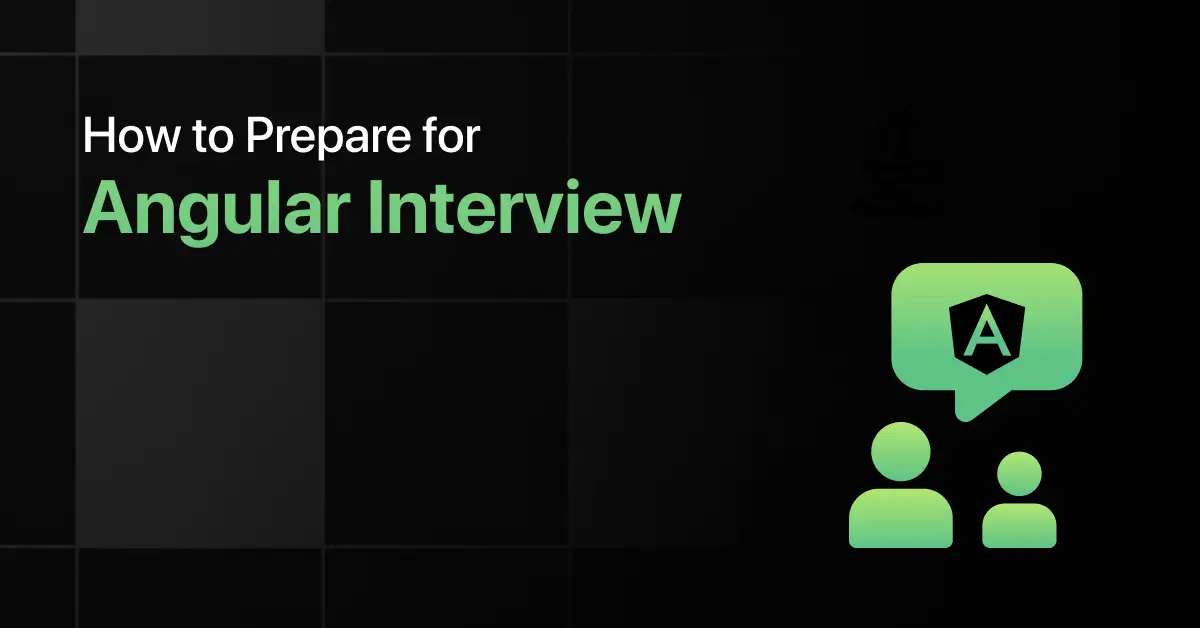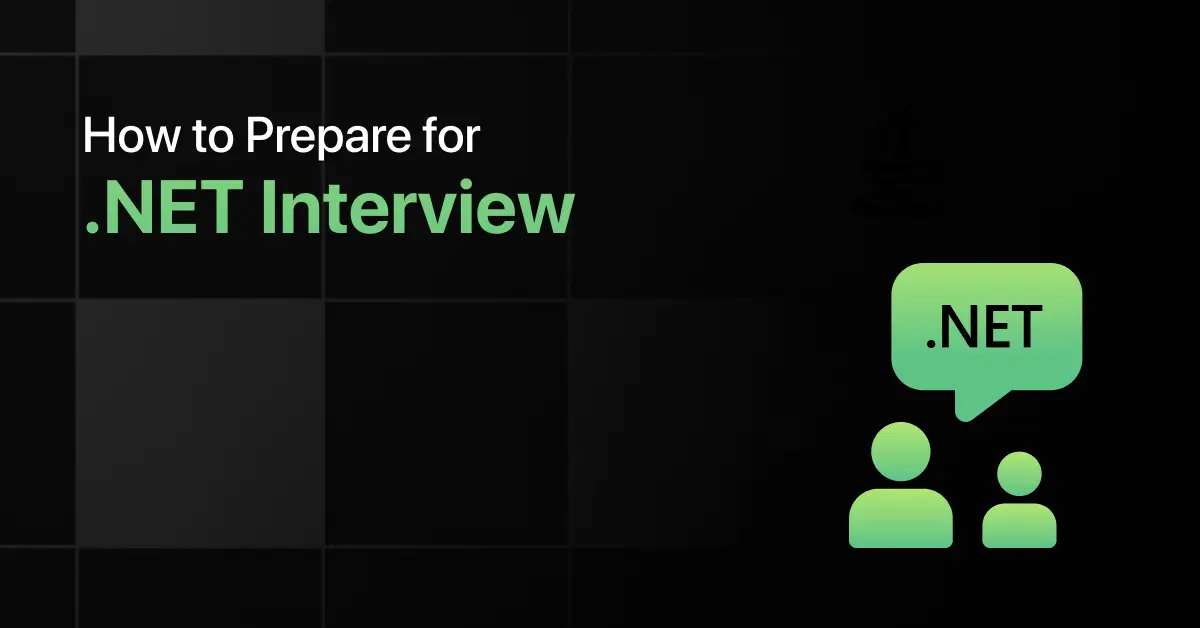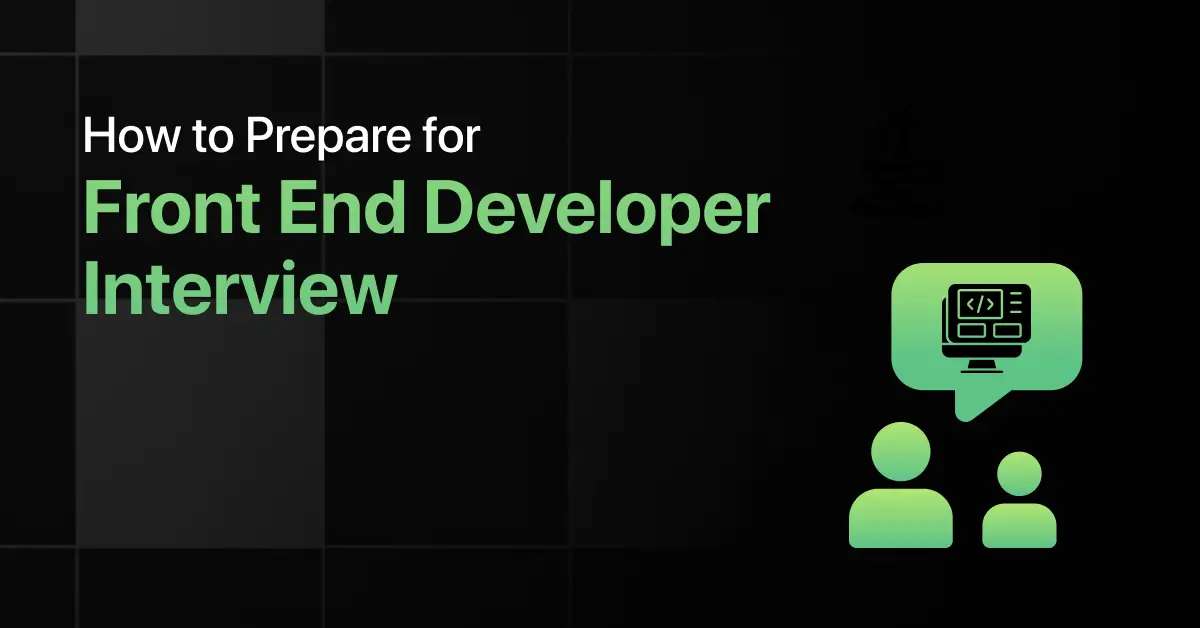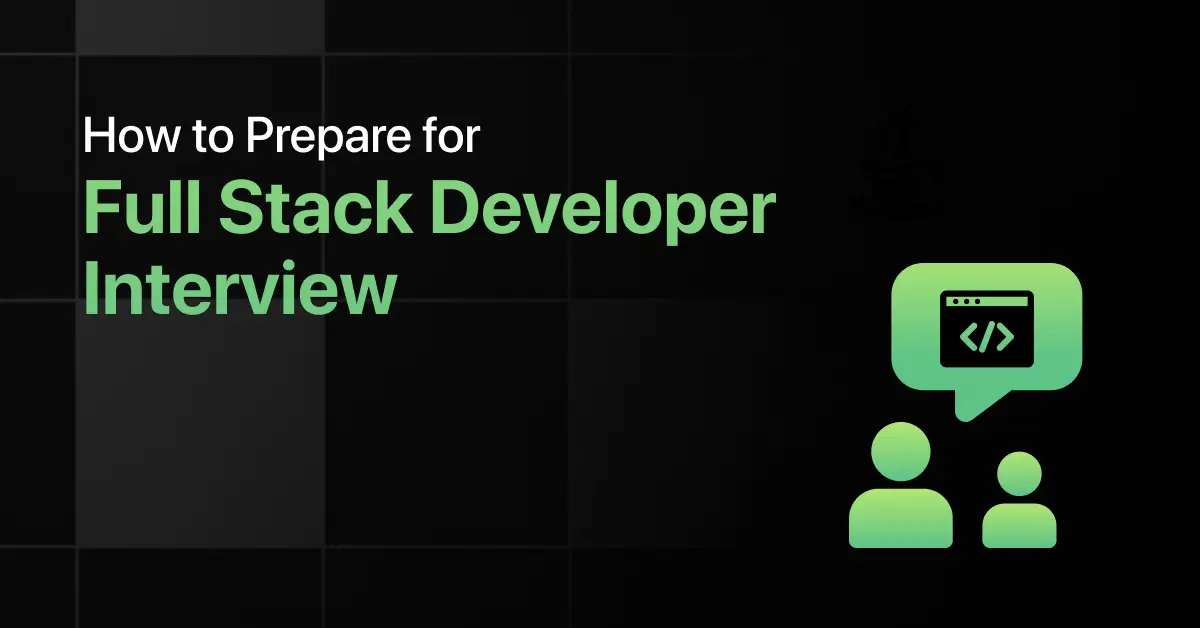How to Prepare for Angular Interview

Are you preparing for an Angular interview but unsure which topics to prioritize?
Many candidates find it challenging to balance core Angular concepts, TypeScript knowledge, and practical coding practice during preparation.
This blog will guide you through a structured plan for Angular interview preparation, covering essential concepts, commonly asked questions, and proven tips to help you perform with confidence.
Angular Interview Preparation Guide
Preparing for an Angular interview requires a solid understanding of both JavaScript/TypeScript fundamentals and Angular-specific features such as components, directives, services, and dependency injection. Interviewers often test your ability to build structured, scalable applications while following Angular best practices.
To prepare effectively, it helps to combine coding practice with real-world projects and also learn from real interview experiences, which provide insights into the type of Angular questions commonly asked in technical rounds.
1. Master the Core Fundamentals
A strong understanding of Angular’s fundamentals is essential before moving on to advanced features. Interviewers often begin by testing your knowledge of the framework’s core building blocks. Key areas to revise include:
- Angular architecture and modular design
- Components, templates, and data binding (interpolation, property, event, two-way)
- Directives (structural and attribute directives)
- Services and dependency injection
- Modules and NgModule
- Lifecycle hooks (ngOnInit, ngOnDestroy, etc.)
- Forms (template-driven and reactive forms)
- Angular CLI basics
- Pipes (built-in and custom)
- Change detection mechanism
- Having clarity in these areas ensures you can answer both theoretical and practical questions effectively.
2. Practice Coding Problems Consistently
Angular interviews often include practical coding rounds where you may be asked to create or debug small components, manage forms, or implement services. Consistent coding practice helps you gain confidence in solving real-time problems quickly.
Focus on exercises such as implementing data binding, creating reusable components, form validation, API integration with HttpClient, and routing between modules. Regular practice using Angular Exercises can strengthen your skills and prepare you for coding assessments.
3. Prepare for Commonly Asked Interview Questions
In addition to coding, interviewers frequently ask conceptual and scenario-based Angular interview questions. Reviewing commonly asked questions ensures that you are ready for different types of interview discussions. Some examples include:
- What are the main features of Angular compared to other frameworks?
- Explain the difference between AngularJS and Angular.
- What is data binding in Angular and what types are available?
- What are directives in Angular and how are they used?
- What is dependency injection in Angular and why is it important?
- Explain the role of NgModule in Angular applications.
- What are lifecycle hooks in Angular?
- What is the difference between template-driven and reactive forms?
- How does Angular handle routing between components and modules?
- What are services in Angular and how are they different from components?
- What is change detection in Angular and how does it work?
- How do you create and use custom pipes?
- What is the Angular CLI and how does it help developers?
- What are Observables in Angular and how are they used with RxJS?
- How can you optimize performance in an Angular application?
Preparing answers to these questions will help you handle both technical discussions and practical demonstrations in interviews.
4. Preparation Tips
A structured plan helps you prepare efficiently for Angular interviews. Begin with revising the fundamentals, then move on to consistent coding practice with real-world scenarios like form handling and API integration.
Take mock interviews to get comfortable explaining your thought process and demonstrating code under time constraints. Work on small Angular projects such as a task manager, weather app, or e-commerce dashboard to showcase your applied knowledge and project experience.
Finally, dedicate the last day to revising key concepts, lifecycle hooks, and commonly asked questions instead of learning new material, ensuring confidence during the actual interview.
Final Words
Preparing for an Angular interview requires a balance of strong conceptual knowledge and consistent coding practice. With a clear plan and hands-on project experience, you can confidently handle both technical and practical rounds.
Explore More Interview Preparation for
- Python
- Software Developer
- C++
- Machine Learning
- Full Stack Developer
- Front End Developer
- .NET
- C#
- PHP
- Node JS
- C Programming
- JavaScript
- Java
- DBMS
- SQL
- React
FAQs
To prepare for an Angular interview as a fresher, focus on learning core Angular concepts, practicing coding exercises, and revising common interview questions.
The most important Angular topics for interviews include components, data binding, directives, services, dependency injection, lifecycle hooks, and forms.
You should practice Angular coding daily by building small components, handling forms, and integrating APIs until you can solve problems confidently.
The best platforms to practice Angular coding questions are PlacementPreparation.io, HackerRank, GeeksforGeeks, and Frontend Mentor.
To revise Angular concepts one day before the interview, quickly review lifecycle hooks, dependency injection, forms, and commonly asked questions.
PlacementPreparation.io is useful for Angular interview preparation because it provides structured exercises, MCQs, and real interview questions tailored for students.
Related Posts


How to Prepare for .Net Interview
Are you preparing for a .NET interview but not sure which topics to prioritize? Many candidates struggle to balance C# fundamentals, …
Warning: Undefined variable $post_id in /var/www/wordpress/wp-content/themes/placementpreparation/template-parts/popup-zenlite.php on line 1050








